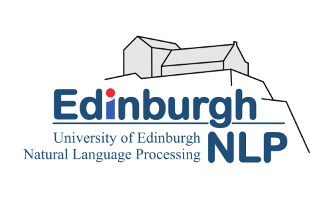
- This event has passed.
Yova Kemenchedjieva
Title: Making and Breaking Unsupervised Bilingual Dictionary Induction
Abstract:
In a recent publication, the Facebook Research Group shows that fully
unsupervised bilingual dictionary induction (BDI) is possible, through generative adversarial mapping between monolingual embedding spaces, and
can in fact be on par with supervised approaches if a graph matching
algorithm, Procrustes Analysis, is applied to refine the mappings (Conneau
et al. 2018). Our initial experiments with this system revealed that the
performance of the generative adversarial network (GAN) component could be
highly unstable, not just in a random fashion, as it often happens with
GANs, but in a pattern relating to the identity of the languages involved.
We thus embark on an exploratory study of GAN-solved BDI as a point set
registration problem, in search of the source of instability. In parallel,
we experiment with a variant of Procrustes Analysis for the task of
semi-supervised BDI, namely Generalized Procrustes Analysis, finding the
latter to be more robust and superior in performance.
Alexis Conneau, Guillaume Lample, Marc Ranzato, Ludovic Denoyer, and Hervé
Jégou. 2018. Word translation without parallel data. In* ICLR*.
Bio:
I am in the first year of a PhD fellowship in Natural Language Processing and Machine Learning under the supervision of Anders Søgaard and Isabelle Augenstein at the CoAStAL group, University of Copenhagen, Denmark.
My academic interests constantly evolve but always remain grounded in Linguistic theory. The focus of my PhD currently is on morphological analysis of low resource languages, using multi-source data.
Before this I completed a Master’s program in Cognitive Science Informatics at the University of Edinburgh, working under the supervision of Adam Lopez. My undergraduate degree, also from the University of Edinburgh, is in Theoretical and Applied Linguistics.

